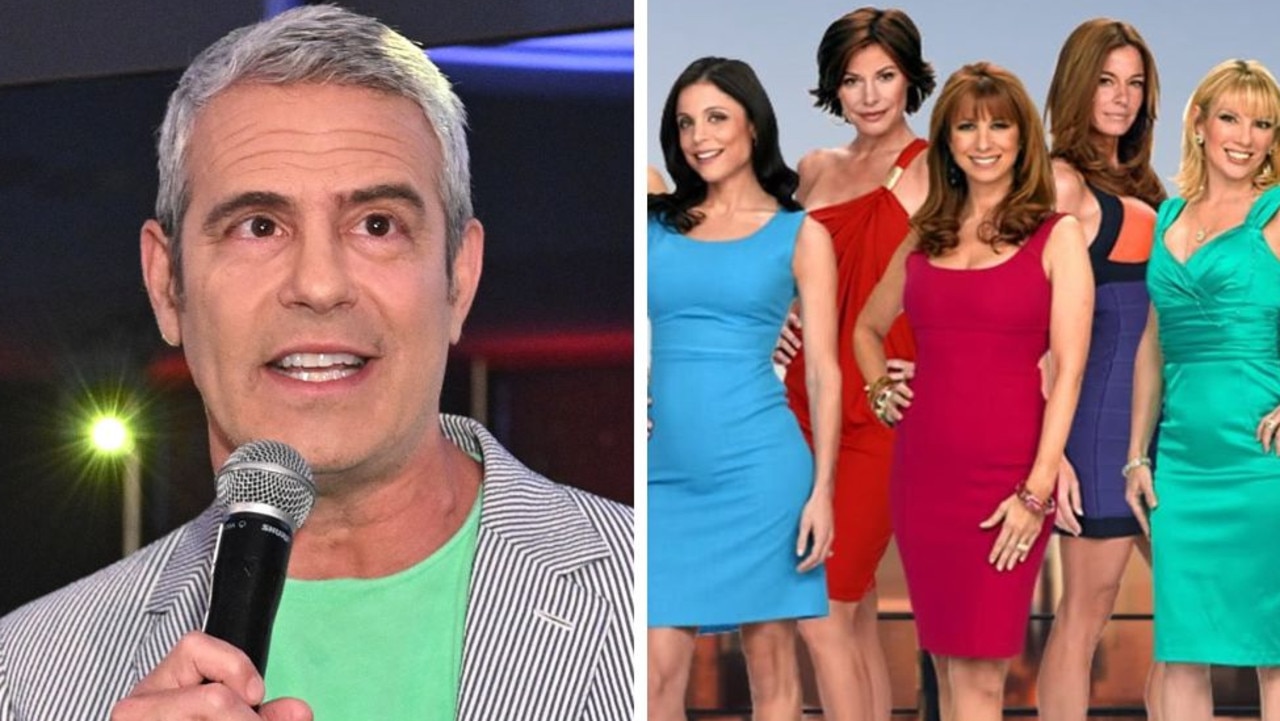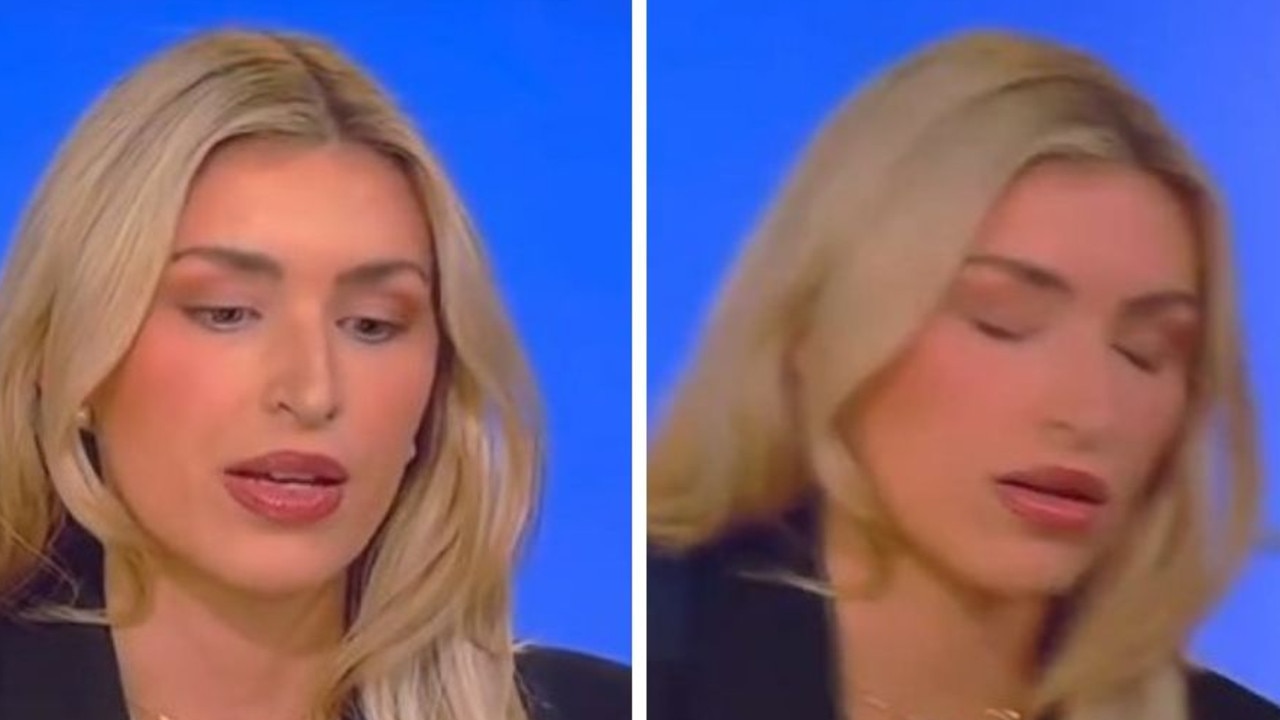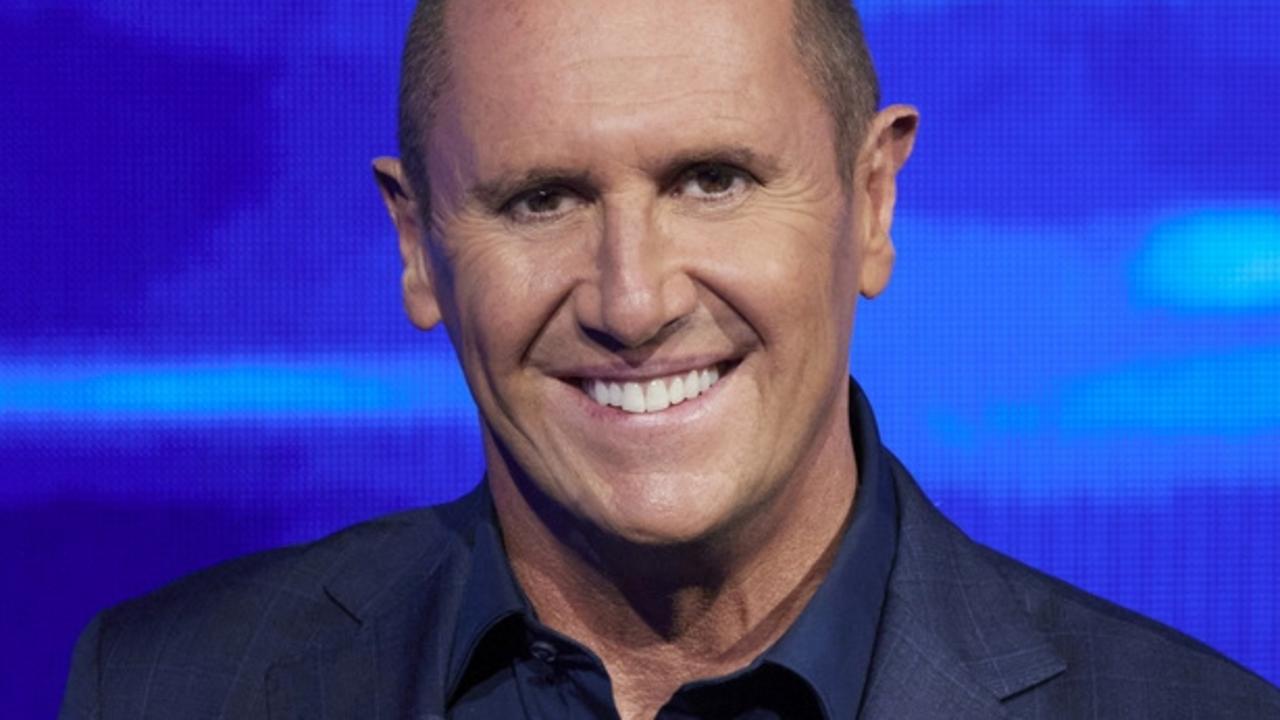House of the Dragon recap: Episode three
One seemingly innocuous quote buried halfway through the latest episode of the Game of Thrones prequel contains an intriguing clue.
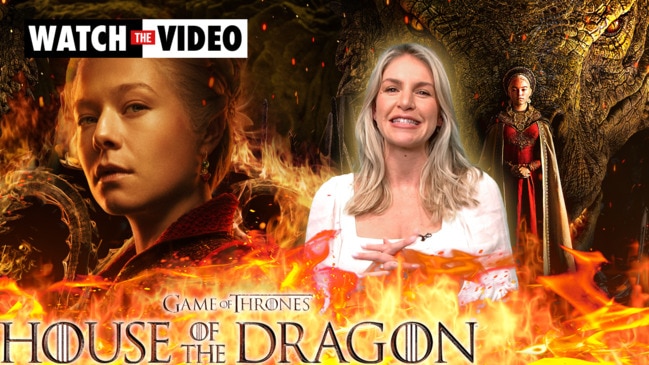
SPOILER WARNING: We shall be discussing episode three of House of the Dragon in detail here. If you have yet to see it, come back later!
First, as always, let’s recall where things stood at the end of the previous episode.
King Viserys spent much of it deciding whether to marry a 12-year-old girl or a 15-year-old girl who also happened to be his daughter’s best friend.
He chose the latter, and in so doing managed to piss off both his daughter, Rhaenyra, and Corlys Velaryon, the most powerful lord in the realm. Good going there.
The episode ended with Corlys convincing the king’s ever-naughty brother, Daemon, to defy Viserys’ wishes by joining him in a conquest of the Stepstones, which are currently occupied by a charming fellow called the “Crabfeeder” (because he feeds people to crabs).
Right then. On to the recap of episode three.
Stream House of the Dragon on BINGE or FOXTEL. New BINGE customers get a 14-day free trial. Sign up at binge.com.au
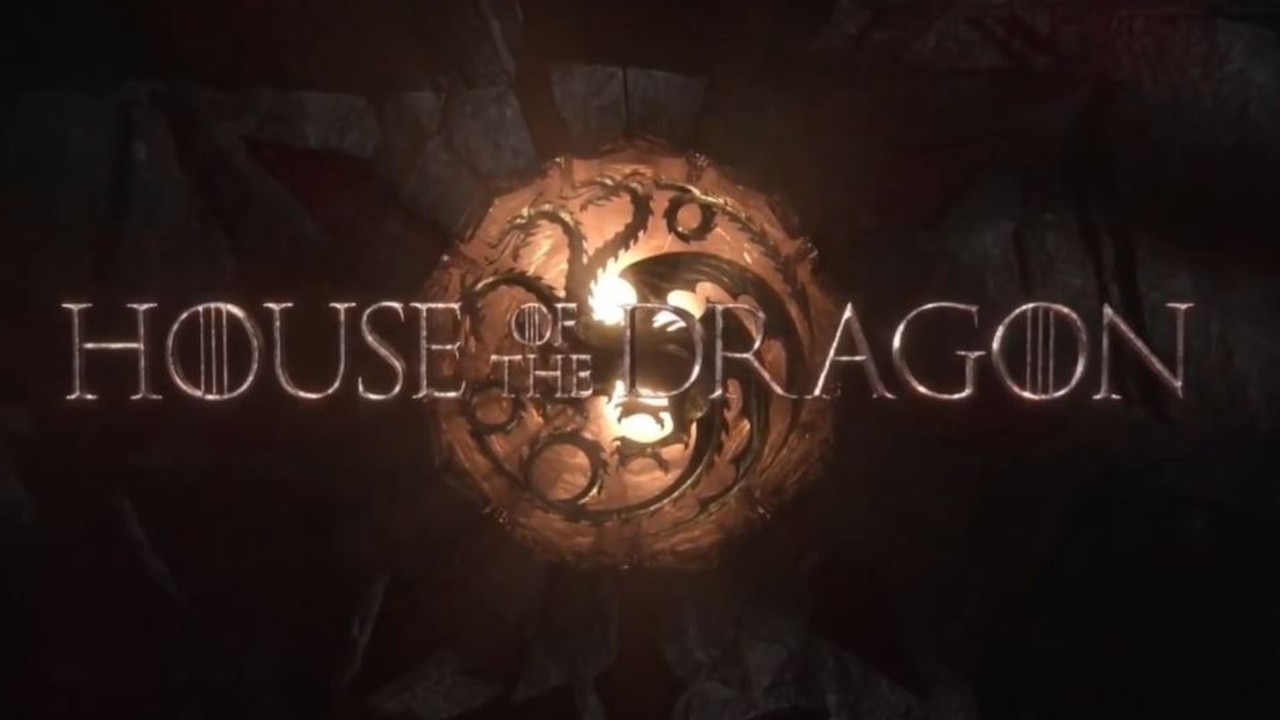
Most of this episode takes place in two locations: the Stepstones, where Daemon and Corlys are waging their private, unsanctioned war against the sinisterly named Craghas Crabfeeder; and in the woods near King’s Landing, where Viserys is hosting a hunt to celebrate his son Aegon’s second birthday.
That’s right, Viserys has a son now, which means we have once again jumped forward in time. From Aegon’s age and the fact that Queen Alicent is heavily pregnant with a second child, we can surmise it has been about three years since episode two.
Alicent is still in her teens, by the way. Fun life she has.
We’ll come back to her in a moment, but the episode begins in the Stepstones, where the Crabfeeder is busy perfecting his peculiar form of torture.
I have a lot of questions about this guy. When did he decide his life’s passion was nailing people to posts and feeding them to crabs? Do crabs actually like to eat humans, or did he spend years painstakingly training a special crab hit squad to do his bidding?
(Painstakingly. Get it? Because there is a lot of pain, and he uses stakes. I’ll see myself out.)
When did he decide to conduct all human communication via the limited medium of head jerks, forsaking spoken language entirely?
None of these questions get answered. I thus demand a seven-season Crabfeeder prequel series, House of the Crab, with a budget of $40 million per episode.
Anyway Daemon shows up on the back of his dragon Caraxes and burns a few unfortunate souls, but Craghas and most of his followers flee into the caves, out of his reach. The prince is forced to fly off under a hail of arrows.
While a formidable weapon, a dragon clearly does not guarantee you victory against a clever foe. And without the Crown’s support, Daemon and Corlys are losing their war.

As we cross to King’s Landing, where Viserys and his court are busy doing nothing of any consequence, it immediately becomes apparent that much of the realm will expect the king to name Aegon his heir, displacing his daughter Rhaenyra.
The first person to express that opinion is Lord Hobert Hightower, brother of Otto, who we have glimpsed once before – swearing fealty to Rhaenyra in episode one. So much for that.
Tyland Lannister, who joined the Small Council in the years that have passed since the last episode, tries fruitlessly to bring Viserys’ attention to the crisis in the Stepstones. It is worth noting that Tyland has a twin brother, Lord Jason Lannister, played by the same actor. He’ll pop up later.
One person notably absent from proceedings is Rhaenyra. We find her reading, in the same spot where she once sat with Alicent. A bard is repeatedly singing the same song to her.
I’m not certain about this so don’t put too much stock in it, but I believe the lyrics are about a famous historical figure, Queen Nymeria. Back in episode one, Alicent and Rhaenyra shared a scene, in the same location, in which they were studying Nymeria. So the choice of song seems significant.
Alicent shows up now, trying to get Rhaenyra to join her father’s big hunt in the Kingswood. There is an excruciatingly awkward moment as the Queen pulls rank, overruling her daughter-in-law and dismissing the bard against her wishes.
We get the vibe here, to be reinforced in subsequent scenes, that Rhaenyra is feeling isolated and lonely. At one point she says Viserys “doesn’t need” her – she’s referring to her presence at the hunt, but Milly Alcock’s delivery of the line suggests its true meaning runs deeper.

Cut to Viserys, Alicent, Rhaenyra and young Aegon in the medieval equivalent of a car, sharing a painful road trip together.
“Isn’t this splendid? The whole of our family off to celebration and adventure in the Kingswood?” says Viserys. Substitute Disneyland for Kingswood and this scene could be straight out of modern times.
Viserys is already pressuring Rhaenyra to marry and produce grandchildren. She has a low opinion of this idea. He’s also pressuring her to take part in the hunt, to which she replies: “No one’s here for me.”
This is because they are there to celebrate the second birthday of her half-brother, Aegon. The toddler gets a standing ovation from the assembled lords for the incredible accomplishment of existing, while Rhaenyra remains behind, alone and moping, inside the carriage.
The point is driven home again in the next scene, inside the king’s tent, as Rhaenyra wanders, friendless, through groups of people sharing conversation and laughter.
Meanwhile, Alicent holds court with a number of noble ladies. They are joined, you will note, by the clubfooted Larys Strong. Keep an eye on this character.
Also of note is the fact that Alicent sticks up for Rhaenyra in this scene, saying she was “more suited to the role” of heir than Daemon.
In her effort to escape from the awkwardness of the tent, Rhaenyra strays outside and runs into Lord Jason, who makes a less than subtle attempt to woo her. She gleans, correctly, that he has done so with the king’s consent.
“EVEN I DO NOT EXIST ABOVE TRADITION AND DUTY, RHAENYRA,” a frustrated Viserys bellows during the subsequent argument, as Rhaenyra tells him she does not wish to get married.
I’ll be using that line on my own children one day when they whine about having to wash up after dinner.
They’re interrupted by Otto, who says a white stag has been spotted by the hunt’s scouts. He calls it a “regal portent” for Aegon’s birthday. Hint hint.
Rhaenyra slips away and flees into the woods, pursued by Ser Criston Cole. They end up sharing a campfire for the night, and get attacked by a boar – is this a reference to Robert Baratheon from Game of Thrones, who was, in his own words, “murdered by a pig”?
There is some sexual tension between Rhaenyra and Criston, which perhaps makes for a nice change, given he isn’t a direct relative.
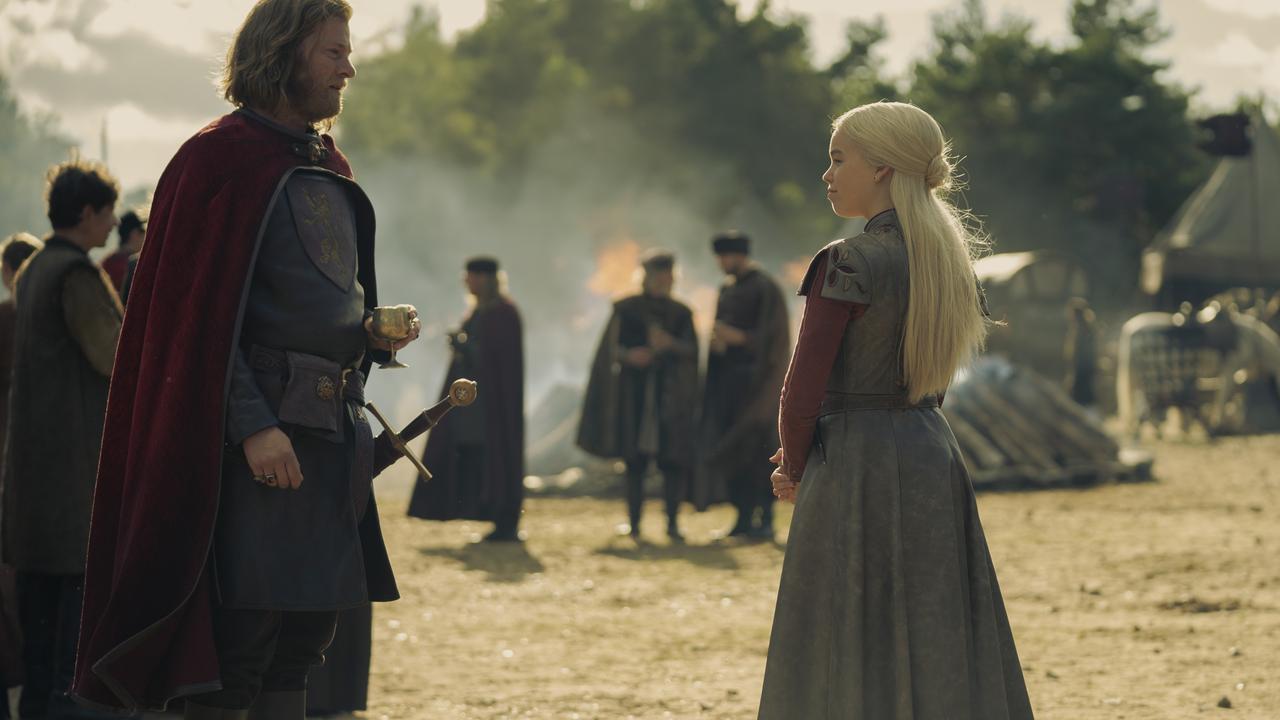
Back in the tent, an increasingly drunk Viserys is besieged by a procession of courtiers, each pursuing his own advancement.
Jason wants to marry Rhaenyra. Otto wants Aegon, his two-year-old grandson, to marry Rhaenyra (the implication being that Aegon would become king).
“I came here to hunt. Not to be suffocated by all this f***ing politicking,” Viserys fumes.
I think this reinforces the impression we had of Viserys in previous episodes: The king is aware that he is surrounded by people who seek to manipulate him for their own ends, and this feeds his own loneliness and depression.
The arrangement of this scene adds to that vibe, with Viserys sitting alone and largely silent, gazing down upon tables full of revelry.
Relief comes in the form of Lyonel Strong, who instead of putting forward his own son Harwin for Rhaenyra’s hand, suggests she marry Laenor, the son of Corlys Velaryon. He says the match could heal the bitter rift between House Velaryon and the Crown.
This scene is important. So far, Lyonel is the only person not pursuing obvious self-interest in his conversations with the king. It makes him stand out.
Of course, Viserys is blind drunk by this point. He staggers out of the tent and stands before the bonfire outside, where he is joined by his wife.
There are three lines worth highlighting from their exchange.
In the first, Viserys tells Alicent about his apparently prophetic dream, which showed “the male babe, born to me, wearing the Conqueror’s crown”. This dream is what made Viserys so certain, back in episode one, that Queen Aemma was carrying a boy.
It seems significant because of the four words about the crown. Viserys does not wear the same crown as his ancestor, Aegon the Conqueror; instead he has adopted the one worn by his predecessor Jaehaerys. Why would his son wear Aegon’s crown?
In the second significant line, Viserys says “my obsession killed Rhaenyra’s mother”. He clearly still carries a great amount of guilt from his decision to have Aemma cut open in an attempt to save their son. No doubt this is adding to his depression.
Line number three: “What if I was wrong?” He is wavering on his decision to install Rhaenyra as his heir.

In the morning, a hungover Viserys is led to a stag, which has been captured and restrained by his subjects. Of note: it isn’t the white, royal stag Otto spoke about earlier.
The king kills it, incompetently. The sycophants surrounding him applaud anyway.
Elsewhere in the forest, Rhaenyra encounters the elusive white stag. She lets it go without bloodshed. There is some heavy symbolism happening here; I shan’t pretend to understand it well enough to draw any conclusions.
Rhaenyra returns to camp with the boar she killed earlier, staring daggers at pretty much everyone. She gets an approving nod and grin from the aforementioned Harwin Strong.
At last we return to King’s Landing. Alicent and her father Otto share a scene in which he tries to get her on team #KingAegon.
“Rhaenyra would be a good queen,” Alicent protests.
“It wouldn’t matter if she were Jaehaerys himself born again. Rhaenyra is a woman,” says Otto. (Jaehaerys was seen as a very good king.)
“What of my son? Would you have me raise a man to steal his own sister’s birthright?” she responds.
“It is Aegon that’s being robbed. He’s the firstborn son of the king, to deny that he is heir to the throne is to assail the laws of gods and men,” says her father.
It is interesting that Alicent is taking Rhaenyra’s side in this conversation.
We next see her with Viserys, where she uses the pragmatic logic that so eludes her husband to convince him he should help Daemon and Corlys in the Stepstones.
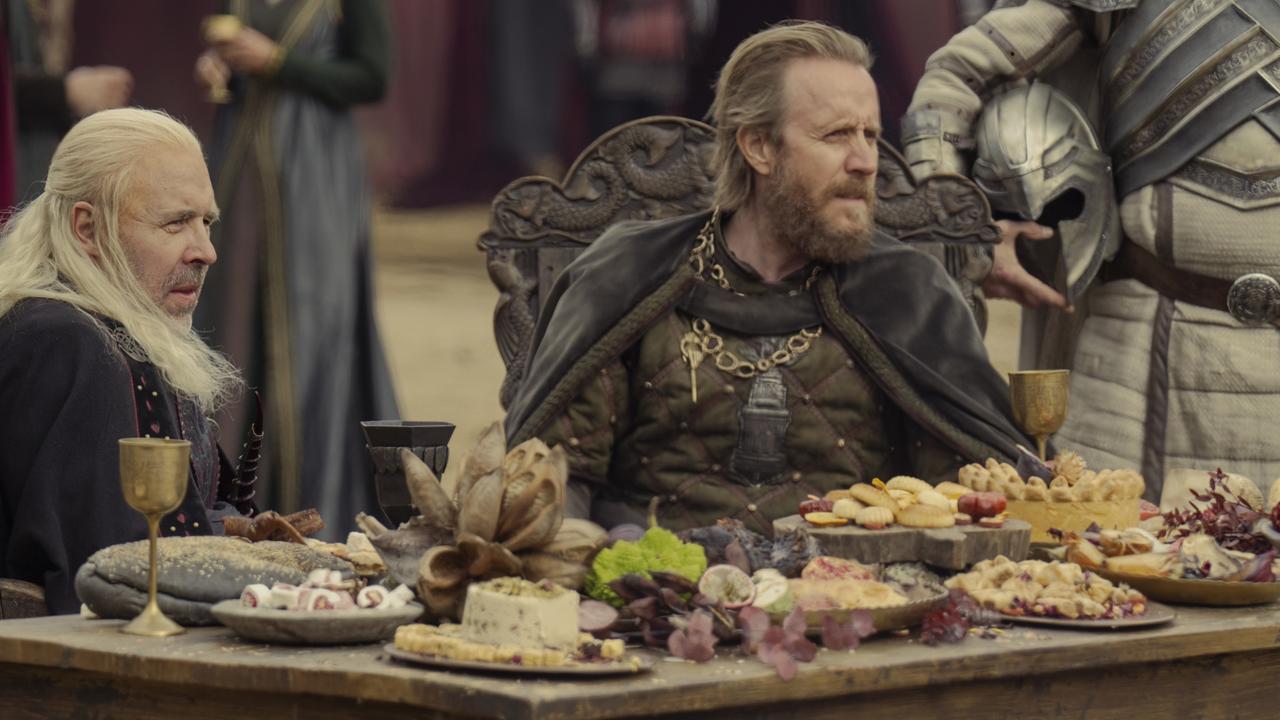
And at last, we come to the confrontation that has been brewing between father and daughter. Viserys and Rhaenyra meet in the Small Council chamber, where the King again tells her she needs to get married.
“It is true that as rulers we must marry for advantage,” he says.
“If it was for advantage, you would have wed Laena Velaryon,” she replies, calling him out.
“That is true enough,” Viserys admits.
“You must marry. Strengthen your own claim. Shore up your succession. As to your match, make it yourself. Search him out. Find one that pleases you. As I did.”
This is a moment of rare honesty from Viserys, who has a habit of keeping secrets. He acknowledges that he chose Alicent not out of duty, but out of personal preference.
And he follows it up with a promise: “I did waver. At one time. But I swear to you now, on your mother’s memory, you will not be supplanted.”
The doubts he expressed to Alicent by the bonfire are quelled, then. Viserys will not replace Rhaenyra as his heir.
There is little to analyse in the rest of the episode, which shows the climax of the conflict in the Stepstones and the Crabfeeder’s death.
What is interesting is Daemon’s reaction to the news that Viserys is finally sending help. He erupts in a blaze of anger, brutalising the messenger who has brought him the King’s letter.
This seems like pride: Daemon is humiliated by the idea of needing his brother’s assistance. And so he embarks on what appears to be a suicide mission, offering himself up to draw out Craghas and his men, exposing them to an attack by the Velaryon forces.
The Crabfeeder is killed before Viserys’ forces arrive. And Daemon becomes one of the few characters in this story who has truly been exposed to the crucible of war.
MVP of the episode
Lyonel Strong deserves recognition. For two consecutive episodes, he has been the only person to offer Viserys unbiased advice, untainted by self-interest.
Villain of the episode
Otto’s advice is anything but unbiased. Now that his daughter has given the King a son, he is laser-focused on convincing Viserys to disinherit Rhaenyra – in favour of a two-year-old. This can’t lead anywhere good.
Twitter: @SamClench




